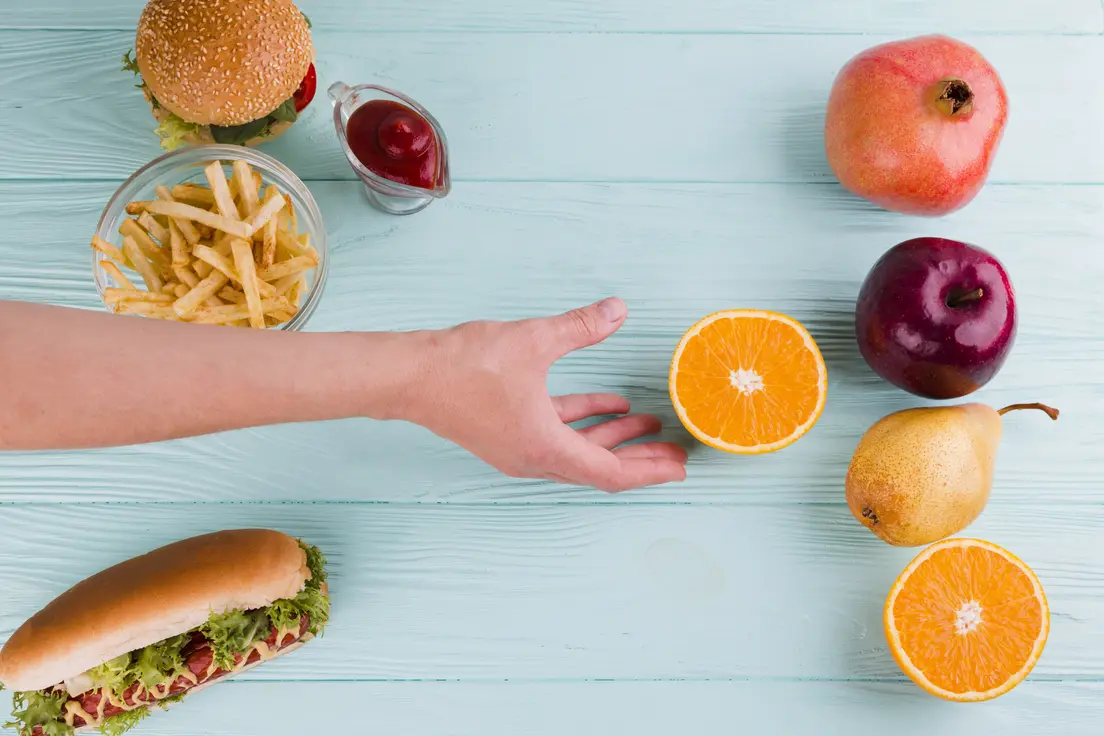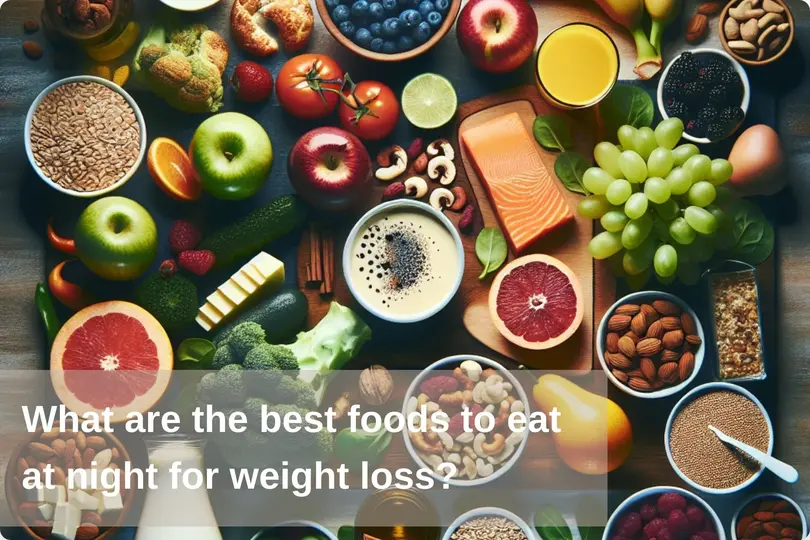The term “junk food” represents a wide range of ultra-processed foods and beverages, including fast food, soda, candy, cookies, and salty snacks. These items often constitute a large portion of people’s diets, with some studies suggesting that it contribute to nearly half of the average American’s daily calorie intake.
While occasional use of junk foods like baked goods, ice cream, and chips is perfectly normal, but relying heavily on junk food can have detrimental effects on both physical and mental health. Diets rich in junk food have been linked to various health conditions such as obesity, fatty liver, high blood sugar, depression, heart disease, and certain types of cancer.
If you find that your diet consists largely of junk food and you’re looking to break the habit, there are several effective strategies you can try.
Cook at Home More Often
Increasing the frequency of home-cooked meals is a highly effective strategy for reducing reliance on junk food. Often, when someone have less time and no alternative meal options available, they resort to convenient yet unhealthy foods like sweetened coffee drinks, donuts, and fast food.
By doing more of home cooking, including meal preparation in advance, one can significantly minimize dependence on junk foods and ensure a ready supply of nutritious meals and snacks. Numerous studies have shown that individuals who cook at home more frequently tend to have higher-quality diets, which is supported by increased consumption of fruits and vegetables and reduced intake of fast food. Additionally, they typically exhibit lower rates of obesity and spend less money on Junk food overall.
Increase Protein Intake
Protein is known to be highly filling and has a significant impact on food consumption and dietary choices. Research indicates that boosting your protein intake can effectively curb snacking and prevent excessive eating, potentially reducing the consumption of unhealthy junk foods.
Moreover, some studies suggest that reducing carbohydrate intake and substituting them with sources of fat and protein may also decrease food cravings and overall calorie consumption. For instance, a small-scale study revealed that adhering to a diet rich in protein and low in carbohydrates (comprising 14% carbs, 58% fat, and 28% protein) for four weeks notably diminished cravings for sweets and fast food.
Additionally, this study also showed that adopting such a diet contributed to enhanced control over dietary choices, reduces feelings of hunger and disinhibition, which pertains to a loss of restraint when confronted with highly palatable foods such as junk food.
Maintain Regular Meal Times
Restricting calories excessively or imposing strict limitations on food intake might appear to be effective for weight loss or curbing junk food consumption. However, it sometimes yields unfavorable results.
Although the relationship between calorie restriction ,its impact on cravings and calorie consumption is multifaceted, certain research indicates that skipping meals or depriving oneself of specific foods can increase cravings and lead to increased snacking.
For instance, a recent study showed that interventions involving the complete avoidance of certain foods resulted in increased cravings for those restricted items. Furthermore, some studies suggest that skipping meals, such as breakfast, may trigger cravings for carbohydrate-rich foods later in the day.
While individual calorie and meal timing requirements vary, adhering to a meal plan supported by regular, fully nutrient, protein rich meals and snacks can generally support a healthy calorie intake and decrease cravings for junk food.
Choose Filling Foods
If you find it hard to manage with your dietary choices, then gaining a deeper understanding of how different foods affect your body and hunger cues could help you craft a perfect diet plan and eventually help you reduce your reliance on junk food.
Typically, junk foods are very high in calories but lack essential satiating nutrients like fiber, protein, and healthy fats. Protein and fiber, in particular, play pivotal roles in promoting satiety by imparting a feeling of fullness post-meal.
Rather than opting for junk food options, like a donut paired with a sugary coffee beverage during your morning commute, take a moment to consider your body’s nutritional needs and the potential impact of your meal choices on factors like blood sugar levels, hunger sensations, and mood. Opting for a breakfast rich in protein and fiber, like egg bites accompanied by a serving of fruit and an unsweetened coffee, can contribute to a greater sense of fullness after eating, potentially curbing cravings for junk food later in the day.
Sleep Eight Hours a Day
Quality sleep is crucial for maintaining good health, and skimping on rest can have detrimental effects on your dietary decisions, potentially leading to an increased inclination towards junk food.
Research indicates that inadequate sleep and disrupted sleep patterns can elevate overall calorie consumption, promote snacking, and intensify cravings for high-carb and high-fat foods, such as junk food.
Even just one night of poor sleep can significantly impact food choices the following day. For instance, a study revealed that a reduction in sleep time by 33%, equivalent to a two to three-hour decrease in sleep duration, resulted in increased feelings of hunger and cravings compared to a typical night’s rest. Moreover, this sleep deprivation led to an augmented desire for chocolate and larger serving sizes.
To safeguard overall health and well-being, the National Sleep Foundation recommends that adults aim for Eight to Nine hours of sleep per night.
Avoid Stress
Stress can have a significant impact on both your physical and mental well-being, influencing not only your mood but also your food choices. While it’s impossible to completely eliminate stress from life, adopting healthy stress management techniques may help reduce your reliance on junk food.
Research indicates that chronic stress can disrupt hormones involved in regulating appetite, such as cortisol. Interestingly, while short-term stress often suppresses appetite, prolonged stress tends to increase cravings for highly palatable foods, including junk food.
A recent study revealed a link between perceived stress levels and the consumption of ultra-processed foods. Those reporting higher stress levels were nearly twice as likely to consume more ultra-processed foods compared to those with lower stress levels.
Engaging in activities like meditation, exercise, therapy, and spending time outdoors are effective ways to alleviate stress and promote overall well-being.
Stock a Healthy Pantry
If your kitchen is filled with junk food, you might want to consider replacing these highly processed items with healthier alternatives. Having easily accessible junk food in your kitchen can contribute to excessive snacking and calorie consumption, which can have negative effects on your health.
Studies have shown that simply seeing tempting foods can activate the striatum, a brain region involved in regulating appetite and food reward. This means that having junk food visible in your kitchen, such as candy, chips, and cookies, can lead to unplanned snacking and overeating, even when you’re not hungry.
While indulging in occasional treats is fine, reducing your intake of junk food is easier when you avoid keeping them readily available. Instead, opt for nutrient-rich options like fresh fruits to satisfy your cravings for something sweet.
Avoid Restrictive Diets
Adopting overly restrictive diets can be harmful to your overall health and can harm your relationship with food. These diets often lead to a cycle of weight loss and regain, known as yo-yo dieting, which is associated with increased weight gain over time and a higher risk of health issues like diabetes and high blood pressure.
Many fad diets impose strict rules, such as completely avoiding added sugar or drastically reducing carbohydrates. This type of restriction can intensify cravings for forbidden foods, leading to overeating and an unhealthy relationship with food.
Instead of following extreme diets, consider transitioning to a more balanced and nutritious eating pattern, such as the Mediterranean-style or plant-centric diet. These approaches prioritize foods that promote fullness and reduce cravings, such as protein-rich legumes, seafood, and fiber-rich vegetables, without imposing strict rules on food choices.
Develop Friendship with Groceries
Maintaining a well-stocked kitchen facilitates home meal preparation and reduces reliance on junk food. Research indicates that individuals who shop for groceries more frequently tend to have higher-quality diets, characterized by lower consumption of ultra-processed foods.
For those who struggle with grocery shopping or decision-making, creating a shopping list can be beneficial. A carefully curated list not only prevents impulse purchases, such as junk food, but also promotes a healthier overall diet. It should include a variety of nutritious items, such as fresh and frozen produce, nuts, seeds, legumes, and protein sources like poultry, and fish..
By keeping nutritious ingredients readily available, individuals are more likely to prepare wholesome meals and snacks throughout the week, thereby reducing their consumption of junk food.




